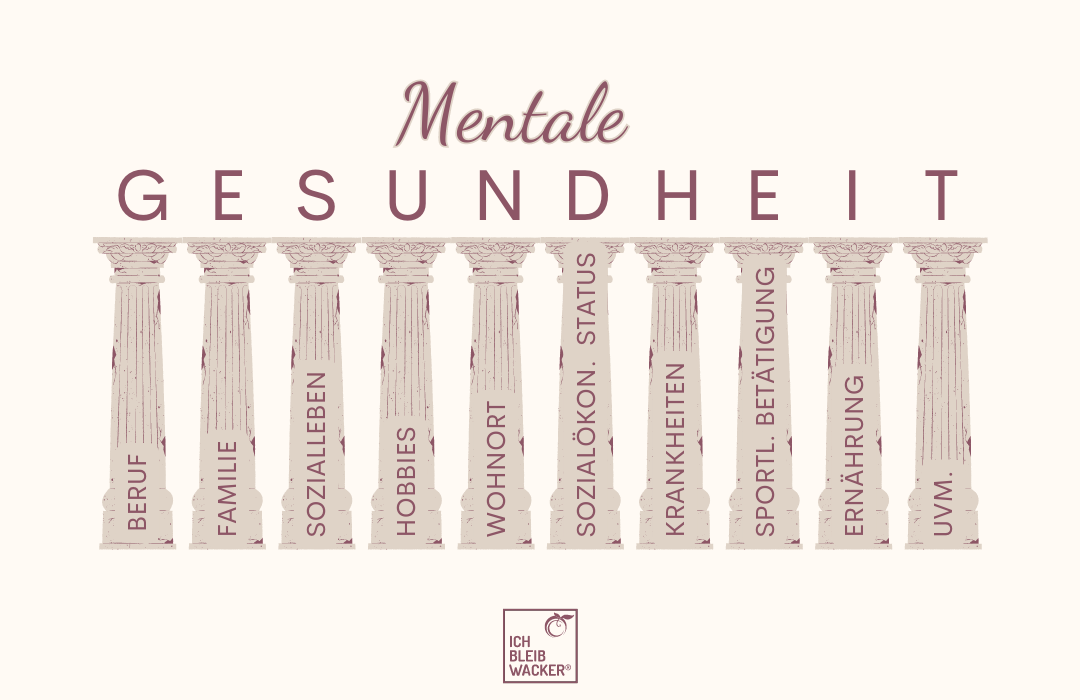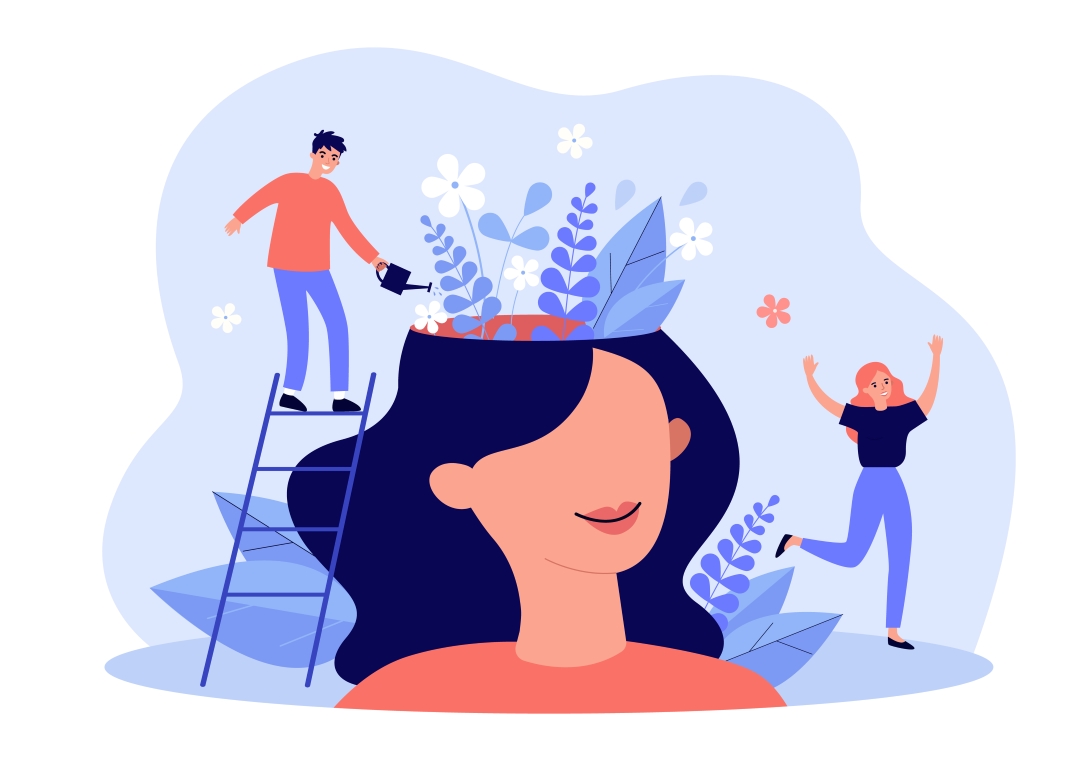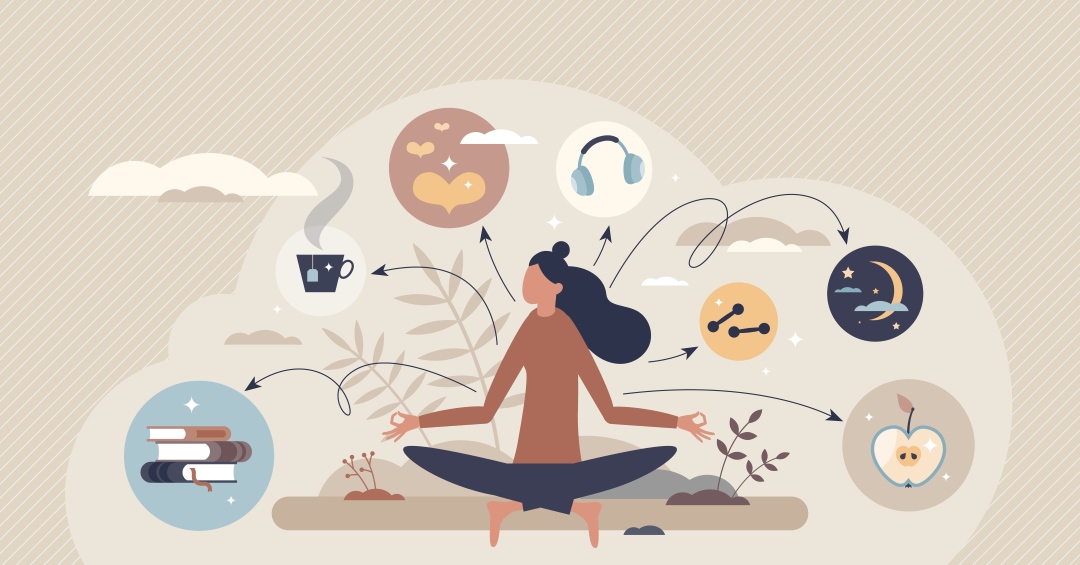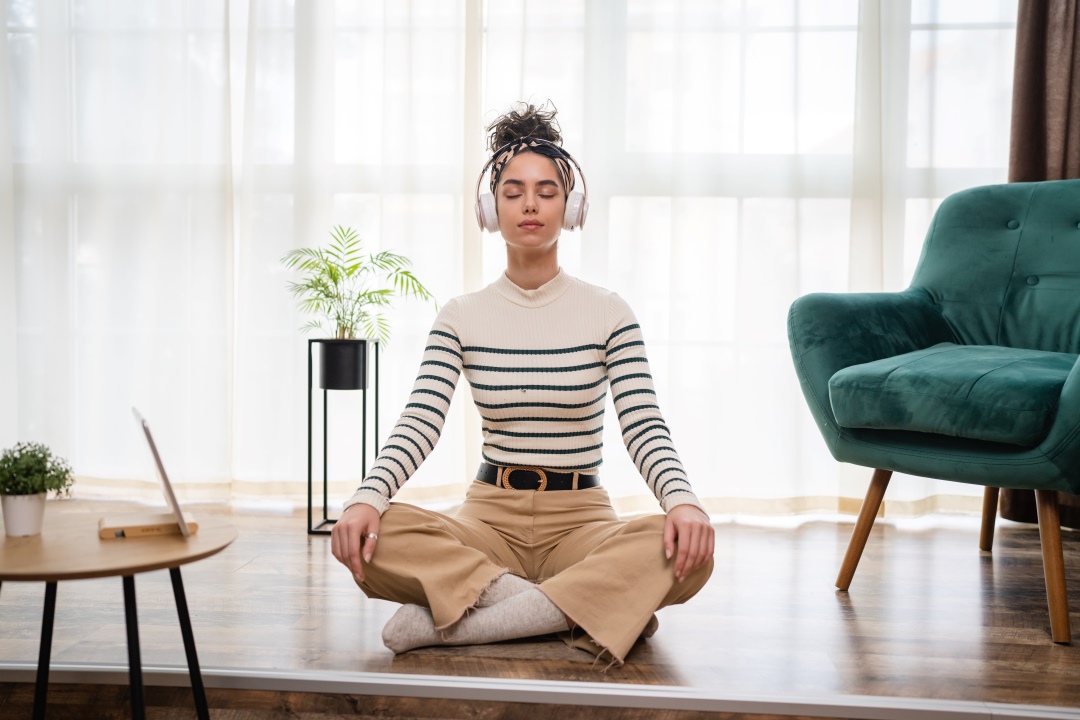The month of May is Mental Health Awareness Month, which means that the theme is "Mental Health". But what does "mental health" actually mean? Why is it perhaps even more important today than ever before and what can you do to strengthen your mental health? We have taken a closer look at this complex topic.
What is mental health?
Mental health refers to the state of our emotional, psychological and social well-being. We are faced with new private and professional challenges every day. Through digitalisation, a multitude of information reaches us every day. All these impressions increasingly challenge our mental and physical health. Mental health includes, among other things, the ability to deal with these challenges of daily life, to cope with stressful situations, to build positive relationships and to have a sense of self-worth and self-confidence. Furthermore, mental health refers to the ability to understand and regulate feelings and thoughts in order to deal with different situations. Mental health does not mean the absence of mental illness, but is a process that influences our personal development and has a direct impact on our personal well-being. It determines how one feels and what one can achieve. There are many factors that can have a negative impact on well-being, but also some factors that can be used to strengthen one's mental health.
These factors influence our well-being
The factors that influence our well-being are complex: job, family, social life, hobbies, place of residence, socio-economic status, illnesses, diet, etc. - these are all pillars that make up our well-being. If one pillar is wobbling, it can have a direct impact on our well-being. Job stress is an example of how the "job" pillar can be shaken: You may want to live up to this stress, which puts you under additional pressure. You do not take enough breaks in order to complete your tasks. You may be working a lot of overtime, which means you have no time for leisure activities or your social environment. Maybe you even take the stress of work home with you. You want to be fit the next day, so you go to bed early. But then the carousel of thoughts begins, revolving around your work. The result: lack of sleep. This is exactly how an everyday challenge and its consequences can look. Often we don't just have to deal with one difficulty, but in all the building blocks of life we are constantly faced with new challenges - and in parallel. So it's no wonder that this can have an impact not only on our well-being but also mentally if we're not careful, and that's exactly why our mental health is hugely important. Because if our mental health is strengthened, we know how to deal with these challenges and don't let them throw us off balance. However, if it is weakened, we are vulnerable to any kind of challenge.

How to strengthen our mental health
The good news is that there are many ways to strengthen mental health. Of course, you can't and don't have to implement all of these factors, because it's also individual what's good for you. The best thing is to try out for yourself which points are right for you.
Mindfulness towards oneself
The term mindfulness is often used in connection with mental health. Being mindful means encountering the respective moment with a non-judgmental and accepting attitude and becoming aware of what one is thinking, feeling or doing at the moment. It means being attentive and aware of present moments. Being mindful of yourself means paying attention to what makes you feel good and what brings you down.

Allow emotions
The topic of mindfulness also includes allowing emotions and questioning what your emotions are trying to tell you. Emotions are something like an inner compass and have a right to exist, because they can be helpful in recognising grievances and bringing about change. Try to perceive your emotions, classify them and, if necessary, derive actions.
Set boundaries and say no sometimes
This point is also an aspect of mindfulness towards oneself. Your friends ask you to help them move. Your grandparents want you to do some shopping for them? And you feel obliged to do everything. Being helpful is very commendable. But only as long as it feels good to you. You are annoyed or can't manage your own tasks any more? You always put your needs behind those of others? Then stop it. It's okay to say "no" sometimes. Your friends and family will understand. And even if you have the feeling that this is expected of you: Often this is only your own feeling and even if you do not fulfil the expectations, your mental health should always be in the foreground.
Do not compare yourself with others
Why do we constantly compare ourselves with other people and does this help to increase our own well-being? Most of the time, it pulls us and our self-esteem down. Because most of the time, the focus is on one's weaknesses and not on the qualities that speak in one's favour. Instead, ask yourself what you have achieved this week, what you can be proud of or what you particularly like about yourself.
Addressing problems and conflicts
Problems cannot always be avoided. If you notice that a person's action is causing you negative emotions, that you are thinking about it all the time and maybe even getting angry, speak up! Often the person does not mean any harm or there is a specific reason for the action. So before you carry the problems and thoughts around, talk to them and get rid of them.
Social contacts
Through social relationships you can share experiences and worries, the feeling of belonging grows and you can support each other emotionally. In addition, togetherness releases happiness hormones, creates security and social support can help you to get through difficult situations.
Let yourself be helped
If you can't get on alone or feel overwhelmed, you can and should get help. You don't have to get through every difficult situation alone. Getting help requires courage and is not a sign of weakness, but of strength. Accept when you have reached a limit and can't get on alone.
Acceptance
Not everything in life has to succeed! Defeats, difficulties, failures and setbacks are normal and also important for life. Because that's how you grow and develop. So don't be so hard on yourself and take the pressure off yourself. Everything doesn't always have to be perfect or work. Focus on the positive things in life, be optimistic and don't give too much importance to the things that go wrong in life. Accept things that you can't change anyway. Don't think about problems and their causes, but try to find solutions.
Social commitment
Helping others or even making them happy promotes self-esteem and evokes positive feelings.
Mindful lifestyle
Besides mindfulness towards oneself, a healthy lifestyle also promotes mental health.

Sufficient breaks
Regular breaks are important at work, but also in everyday life. Every phase of exertion should be followed by a rest phase. Afterwards, you can devote yourself to the next phase of exertion with renewed energy and concentration. A digital detox can also be helpful, i.e. a break from smartphones and the like. Are you one of those people who sometimes even unconsciously check Instagram, WhatsApp and the like? Then give up your mobile phone for 1-2 hours a day and regain control over your actions. This can be liberating and also relieve stress.
Healthy diet
Eat a healthy and balanced diet. Provide your body with enough nutrients and energy for the day. With a healthy diet, you are less prone to illness and feel better overall. In our shop you will discover lots of natural foods that contain only the ingredients that really belong in them. Artificial additives have no place in our food. Did you know that your intestines can also have an effect on your well-being? Would you like to relieve your bowels? Then try our All-round carefree package for 7 days of alkaline fasting off. This week you will not only do something good for your body, but also learn to eat mindfully.
Sufficient sleep
Sleep affects both mental and physical health, because too little sleep can damage the heart and circulation and also lead to obesity. In addition, lack of sleep can lower mood and lead to listlessness.
Sufficient exercise
It doesn't always have to be a sports programme, even short walks in the fresh air are good for body and mind. Exercise helps you switch off and releases happiness hormones. If you set yourself certain goals, you can even increase your self-esteem with exercise. You feel proud of yourself when you have achieved your goals. These don't always have to be big goals, like running a marathon. Small goals, such as walking 6000 steps a day, are enough. In addition, yoga, meditation and mindfulness exercises can be useful to strengthen mental health and better deal with the challenges of everyday life.
Separate work and leisure
Body and mind also need a break sometimes. Try not to take work home with you. Don't be available 24/7 if it's not necessary for your job. After work, consciously occupy yourself with other topics. This way you can be productive and motivated again the next day.
Be open to new things
Openness and curiosity make life exciting and varied. To try new things, you leave your comfort zone and can thus gain self-confidence.
Mindfulness exercises
Despite the factors that strengthen mental well-being, it is perfectly normal to feel stress, anxiety, nervousness or other symptoms that can upset your well-being. If this is the case for you, there are many mindfulness exercises that can help.

Breathing exercise:
Sit comfortably and breathe deeply in and out while focusing on your breathing. Focus on how your belly rises and falls as you inhale and exhale.
Progressive muscle relaxation:
Start by tensing and relaxing the muscles of your feet. Then slowly work your way up to the muscles in your face.
Are you interested in mindfulness exercises? Then take a look at our Instagram channel drop by. There we will share one or two mindfulness exercises with you and provide you with inspiration on the topic of mindfulness every Monday.
Mindfulness exercises are not only useful in stressful situations, but also in everyday life to gain distance from thoughts.
Conclusion
The topic of mental health is complex and not finished with the factors and tips mentioned. How do you switch off or deal with challenges? Do you have specific mindfulness routines built into your everyday life? We'd love for you to share your experiences in the comments! If you notice that you are not doing well mentally, please get professional support!
Sources: AOK, Sports + Mental Health LAB, cerascreen, 7Mind, Mindful Leadership Institute, Zurich, SWAV Berlin, Fürstenberg Institute
Image Mental Health: Adobe Stock, primipil, #365349062
Image Mindfulness: Adobe Stock, Bro Vector, #384073918
Mindful Lifestyle Image: Adobe Stock, VectorMine, #461467085
Image Mindfulness exercise: Adobe Stock, Miljan Zivkovic, #556844457




